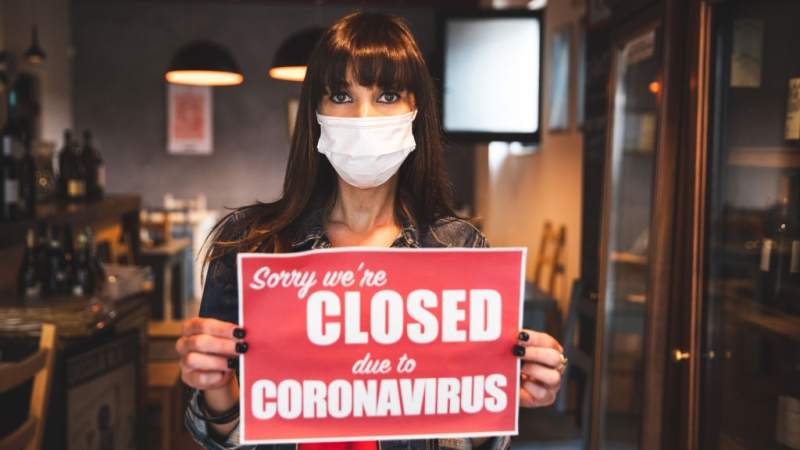Gov. Gretchen Whitmer has said she won't be loosening any COVID-19 business restrictions until at least Friday, Jan. 15. | Stock Photo at Getty Images
Gov. Gretchen Whitmer has said she won't be loosening any COVID-19 business restrictions until at least Friday, Jan. 15. | Stock Photo at Getty Images
After seeing a steady downturn in COVID-19 cases, Michigan seems to be on the rise once again.
While there had been fewer positive cases and hospitalizations, the state is experiencing a pause in recent weeks, Bridge Michigan reported. This led Gov. Gretchen Whitmer to keep restrictions in place, especially with the 4,326 new daily infections reported on Jan. 6.
Whitmer said restrictions on businesses likely won't be lifted or loosened before Friday, Jan. 15.
“I anticipate some more days of data before a determination is made on what the next steps look like,” Whitmer said, according to Bridge Michigan.
The state saw a new low in December of 1,600 new cases on Dec. 27 and 28, but since then, it has seen an increase in daily cases.
Hospitalizations for COVID-19 have risen in the past week, but they are still below the national rates.
State officials are also saying that a second strain of the coronavirus, which was identified in the United Kingdom, may have arrived in Michigan.
“I don't think we would be surprised if it was here already, and we expect that it could have significant impacts on the spread of the disease in the state,” state epidemiologist Sarah Lyon-Callo told Bridge Michigan. She said Michigan will be monitoring for variations in the virus.
"Specimens of COVID tests sent to the state laboratory have been genetically sequenced since the beginning of the pandemic in March," Lynn Sutfin, spokesperson for the Michigan Department of Health and Human Services, told Bridge Michigan. "However, specimens from tests that are sent to other labs — hospitals or private labs, for example — are sequenced only if they are passed on to the state lab for a particular reason. Given that B.1.1.7 was first identified in Great Britain, a lab should forward specimens from a person being tested who also recently traveled to Great Britain."



 Alerts Sign-up
Alerts Sign-up